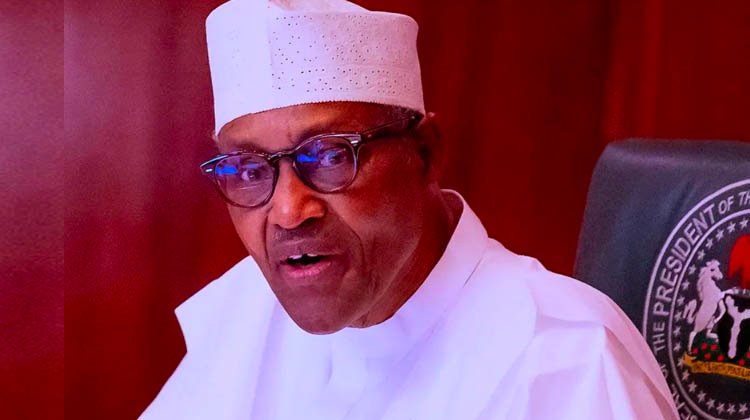
FROM being a potentially prosperous haven, Nigeria is mutating to a place of excruciating misery. A fresh attestation of the country’s steady descent to a land of woes comes from Hanke’s Annual Misery Index, a global economic study of countries in which Africa’s most populous country plunged four places, from 15th in 2020 to the 11th most miserable territory in 2021. Without a doubt, inequality, poverty, joblessness and economic hardship are rapidly conflating to make Nigeria an unliveable contraption. Led by all tiers of government, all hands should be on the deck to stem the decline.
Owing to its lethargy, anachronistic and pedestrian economic choices, the regime of the President, Major General Muhammadu Buhari (retd.), is not delivering on the basics of governance, particularly on the economy, which the research has just reiterated.
Undertaken by Steve Hanke, a professor of applied economics at Johns Hopkins University, Maryland, United States, the research focuses on four salient parameters: inflation; lending rate; unemployment figures; and GDP growth. Nigeria fared abysmally in all the categorisations in 2021. Out of 156 economies assessed, it was the 11th most miserable country. In Africa, it is better than only Sudan, Zimbabwe, and Angola in misery.
It is shameful that Nigeria is being categorised with the aforementioned trio. It is an ugly stain on the incumbent regime and the previous ones. Sudan is perennially wracked by civil strife; Zimbabwe is yet to recover from the atrocious Robert Mugabe era; Angola is wrecked by grand larcenists in power plundering its oil wealth.
With its enormous oil and gas resources, Nigeria is potentially an economic giant. It is the 13th largest oil producer and ranks 10th in gas reserves in the world, earning $565.5 million from crude and gas sales in the first quarter of 2022, says the Nigerian National Petroleum Company. On the ground, that has not translated to improvement in human development indices. On the contrary, in 2018, Nigeria acquired the notorious title of the global capital of extreme poverty. From 87 million that year, more than 90 million Nigerians are now ensconced in extreme poverty. This is a euphemism for misery. Nigerians are finding it more difficult to feed, as food prices soar.
The reasons for the mass poverty are obvious. For long disarticulated, under Buhari, the economy has plunged into turmoil. His policies are delivering pains for the majority. Since he assumed office in 2015, the country has witnessed two recessions. In 2020, Nigeria recorded a negative growth of -1.8 per cent. It was -1.6 per cent in 2016. For a country of 211 million struggling with a GDP of $432.29 billion (2020), this translates to mass deprivation.
The result is that unemployment, which was 14.4 per cent in January 2017, climbed to 23.1 per cent in 2018, 27.10 per cent in 2020, and is currently 33.3 per cent. Annually, millions of youths graduate into the labour market with little hope of gaining employment. Due to the COVID-19 pandemic, 20 per cent of full-time workers lost their jobs in 2020, says the National Bureau of Statistics, which accentuates youth joblessness estimated variously at between 42.5 per cent and 55 per cent. This deepens misery.
Inflation has become monstrous. The current NBS figure of 15.92 per cent is likely understated because Nigeria depends largely on imports for basic necessities and raw materials for industry. With naira’s value deteriorating weekly, the cost of goods and services increases astronomically, worsening inflation. It throws planning overboard. In contrast, Euro area annual inflation was projected to be 7.5 per cent in March, up from 5.9 per cent in February, according to the European Union.
Although it is an oil producer, factories are closing down due to unsustainably high energy costs. The prices of diesel, aviation fuel, gas and lubricants are up. Electricity power output oscillates between 2,000 megawatts and 5,000MW despite billions of dollars invested over the years to boost it. Consequently, industrial output is limited and expensive because alternative energy adds 40 per cent to the cost of goods, according to the Manufacturers’ Association of Nigeria.
Debt is at record levels as public income shrinks. To build social infrastructure, the government is borrowing heavily. Additionally, it is printing money – Ways and Means – to survive. It hurts that there is no concise economic policy outside the perfunctory doling out of money to a few through tokenistic measures like TraderMoni and Market Moni.
With the Central Bank of Nigeria’s benchmark lending rate at 11.5 per cent, borrowing costs are prohibitively high for businesses. Worse, it is difficult for them to source forex to import raw materials. They resort to the parallel market, where the rates hover between N595 and N600 to US$1. At the inception of the Buhari regime, it was N199 to $1.
To reverse the dire misery index, Buhari must urgently review his economic policies. First, the Executive Orders on the economy, especially on operations at the seaports, should be revived and implemented. It should be obvious to the regime that the impediments to exports and imports are hurting Nigeria’s economic growth. The harrowing delays have to be tackled frontally through technological solutions and modernisation of ports infrastructure.
Second, the President should privatise the refineries and all the other commanding heights of the economy. Without efficiently priced electricity, increased industrial output is a mirage. The revenue garnered from the sales should be redirected to power and infrastructure.
Beyond that, the 36 state governments should become productive. Instead of depending on declining federal allocations, they should take giant steps to make their states independent economic units by attracting investors and providing the necessary favourable environment for businesses to thrive.
All this is impossible without a new security structure. The current policing system has failed woefully. To halt the siege of insecurity, states must build local security capability and agencies. Working together with federal and state legislators, they should urgently promote the adoption of the “doctrine of necessity” to devolve policing responsibilities. This will enable farmers to return to their farms and help revive commerce and tourism.
Copyright PUNCH.
All rights reserved. This material, and other digital content on this website, may not be reproduced, published, broadcast, rewritten or redistributed in whole or in part without prior express written permission from PUNCH.
Contact: [email protected]




